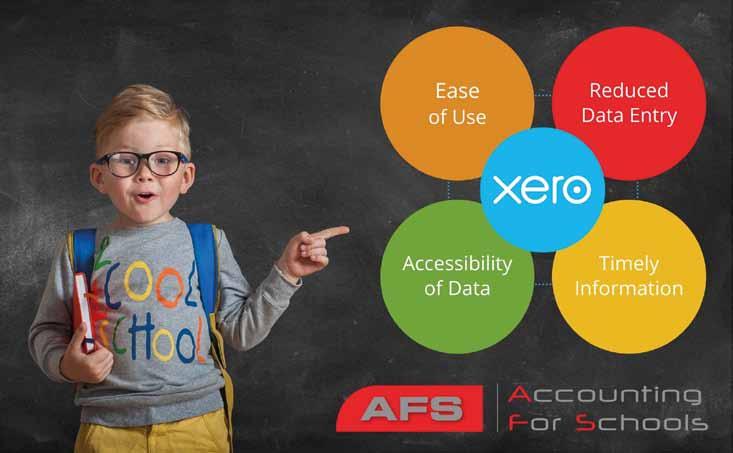
9 minute read
PrESIDENT’S PEN
Perry rush national PrEsidEnt, nEw ZEaland PrinciPals’ FEdEration
aS ThE NEw year begins after the turmoil of 2020, we turn our professional focus to curriculum.
COVID disrupted many things in 2020 not least the focus needed by Government and the Ministry of Education to address pressing questions about declining rates of achievement and how to support teachers to implement the New Zealand Curriculum (NZC).
The NZC has never recovered from the cruel punches National Standards inflicted. The policy undermined the creativity and professional bravery required to successfully implement the NZC. Our Curriculum is world-leading because it is generic. It deliberately lacks specificity so that teachers and students can build relevance and bring detail to what and how learning occurs. Such an approach, while laudable, needs careful investment and significant resourcing to help teachers learn how to join powerful curriculum knowledge to local contexts.
Sadly, it has received neither.
In the absence of professional support and associated resources, it has come to mean different things to different people. Some schools support the establishment of clear local teaching goals to detail what is required of teachers, while other schools are more relaxed about these goals preferring they are worked up by teachers in partnership with students.
It is a test of any local curriculum as to whether it speaks to the National Curriculum; supports the understanding of clearly understood concepts, knowledge, and capabilities; and provides the basis for deep and challenging learning.
Not every school has a local curriculum that successfully does this. While there are many outstanding local curricula our approach in New Zealand has become fragmented and laissez faire.
We have noted for many years, growing evidence of declining rates of achievement in Literacy, Mathematics and Science. New Zealand educators give little credence to the narrow measures of international assessments such as the Programme of International Student Assessment (PISA), Trends in Mathematics and Science Study (TIMSS), or the Progress in Reading Literacy Study (PIRLS). League tables ranking performance are unreliable and do not reflect context. There is little point comparing the performance of countries who focus on ‘drill and skill’ with our approach to teaching and learning in New Zealand. We focus on the whole child and have a broad and varied range of educational goals. However, we do recognise that our own performance on international assessments shows a pattern of decline over the past 20 years across all three domains.
Our own National Monitoring Study of Student Achievement (NMSSA) finds a low percentage of students in Year 8 achieving ‘at’ or ‘above’ curriculum expectations.
In 2019, in Writing, 63 per cent of Year 4 pupils achieved ‘at’ or ‘above’ curriculum expectations while 35 per cent of Year 8 pupils achieved ‘at’ or ‘above’. In Reading 63 per cent of year 4 pupils achieved ‘at’ or ‘above’ curriculum expectations while 56 per cent of Year 8 pupils achieved ‘at’ or ‘above’.
Mathematics and Science achievement is even more concerning.
In 2018, in Mathematics, 81 per cent of Year 4 pupils achieved ‘at’ or ‘above’ curriculum expectations while 45 per cent of Year 8 pupils achieved ‘at’ or ‘above’.
In 2018, in Science, 94 per cent of Year 4 pupils achieved ‘at’ or ‘above’ curriculum expectations while 20 per cent of Year 8 pupils achieved ‘at’ or above’.
Year 8 pupils in New Zealand are achieving between 20 per cent and 63 per cent of curriculum expectations.

These findings have not provoked any urgency of response, which indicates a lack of system level curriculum and pedagogical leadership. It also indicates flaws in the professional development mechanism for teachers and leaders of learning in our schools.
I believe we have little thought leadership available to enable important ideas and approaches to curriculum to be debated, established, and implemented in a coordinated manner across the sector. If there are such thought leaders available, I am unaware of who they are.
I ask the question, who are our designated system-wide curriculum leaders? Can you name them? I can’t!
In a national education system, that is a serious weakness.
Have we become so invested in localisation that we have failed to see the impact on curriculum coherence?
I am not arguing that localisation should cease, quite the contrary. Locating curriculum in powerful and important local goals is critical but we must also be clear about what curriculum is important to us all and, as professionals, be clear about what that curriculum requires of us.
Our National Curriculum is poorly described, and we must remedy that.
In doing so we must avoid seeing issues in a binary manner. It is possible and appropriate to better describe our curriculum, maintain localisation and hold to student-centred approaches in teaching and learning.
Better describing the NZC is not a cry for a demanding, tight, regimented, outcome-based approaches but for greater specificity that empowers teachers to design powerful student-centred teaching whilst knowing what they intend for learning. Too many teachers are uncertain about what the curriculum requires of them. Having clarity about teaching goals is key to being an effective teacher.
The Ministry of Education is currently working on the Ministerial recommendations of the Tomorrow’s School Taskforce. A key recommendation was the establishment of a nationally based Curriculum Centre, established and located within the Ministry of Education.
Key to any greater involvement of the Ministry of Education in curriculum, is the reengagement of practicing teachers and school leaders who are recognised as having significant curriculum expertise.
The loss of our trusted and talented curriculum advisory services dealt a blow to the provision of coherent thought leadership for schooling. We have not recovered from this loss and their absence is keenly felt. We would ask that the Ministry of Education builds strong relationships with curriculum experts in schools so that these professionals can be empowered as national leaders.
Further, if we are to make positive progress on achievement challenges and grow effective professional practice in a coordinated manner, we need nationally coordinated and coherent professional development (PLD) to limit the damage of the market-driven professional learning model that is currently in place.
Let’s get the balance right. Strong pedagogical and curriculum leadership is urgently required. It must be nationally coordinated and be enabled in partnership with those that lead this work in our schools.
We urgently need to refresh the NZC to ensure it is fit-forpurpose.
Our experience tells us that traditionally schools review their accounting systems on two occasions – while they are setting their budget – and during the course of their audit.
During the budget setting process it is always a good idea to ask yourself some questions: “Do I receive good budget tools/spreadsheets with comparative data from my provider? Can I get support, advice and assistance if needed? Does my budget meet audit standards - including Balance sheets and Cashflow figures?”
We know all accounting service providers aren’t created equal – and cheapest is definitely not best. Come and see why Education Services is the most popular accounting service provider for schools in New Zealand. Experience the peace of mind that everything is done on time every time – and why over 700 schools know us as the real school accounting experts. A busy school principal has quite enough to contend with, without having to manage an accounting system – let us take all the worry out of that – and minimize your risk of misappropriation and fraud.
We can process your schools data from any platform – our own, xero, myob, moneyworks, or any other – what ever works best for you.
For a no obligation free demo and quote contact Pete on 027 243 5785 or e: pete @educationservices.co.nz

SchOOL AccOunTIng – ThE BEST SYSTEMS, SuPPORT AnD ADVIcE
During these uncertain COVID-19 times, schools need online accessibility to their financial system from anywhere and need confidence in their financial position. Schools can achieve this by utilising modern accounting solutions, such as world leading accounting software Xero (xero.com) and Hubdoc (hubdoc.com). There are now approximately 700 New Zealand schools managing their finances via Xero.
Using Xero to manage the bookkeeping aspects, frees up funds for schools to engage service providers such as Accounting For Schools, to provide assistance around the more complex financial aspects of running a school. With limited funding, schools need access to solutions and guidance that will deliver tangible benefits for their students and teachers alike.
Accounting For Schools are the foremost Xero and Financial advisory experts within the school accounting space. Having utilised Xero since 2008, they have obtained the highest level of Xero recognition possible, Xero Platinum Partnership. With over 100 years of combined accounting and advisory experience, the knowledgeable team is able to provide exceptional advice and support, and all in plain English, not accounting jargon.
Accounting For Schools add significant value to schools, by providing insightful observations within the monthly reports, assisting with budgeting, forecasting and with planning for the future; Accounting for Schools are always looking ahead, not just thinking about what is happening now. As an example, Accounting For Schools budget templates have comprehensive calculators to ensure risk areas such as staffing and teacher aides are accurately budgeted. As a result of this approach, Accounting For Schools are able to identify the key financial issues a school is facing and provide accurate guidance, allowing Boards to make decisions quickly and have confidence in the financial direction of the school. Accounting For Schools can also assist with the difficult decisions around how to best manage staffing entitlement.
As part of giving back to the school community, Accounting For Schools run free group training sessions each year for Office Managers, Executive Officers, Business Managers and Principals. The sessions provide tips and tricks around using Xero, insight around school finance developments, guidance around managing staffing and longer term financial planning. Schools also see this as a great opportunity to discuss other issues with their colleagues. A school does not need to have an existing relationship with Accounting For Schools to attend these sessions.
Along with value-adding solutions for schools, Accounting For Schools can manage the preparation of the annual reports and ensure a stress-free audit process, that results in significantly less demands on the support team.
Accounting For Schools are able to tailor an accounting solution that suits the individual needs of each school; they are aware that every school has different requirements. By using Accounting for Schools, the school can be assured that all financial aspects are covered and there is access to expert advice, along with ongoing support, so that you can have confidence when making financial decisions.
If the school is not getting the support it needs from your current accounting provider, then contact Ben Duflou or Allison Henderson today for a no obligation chat and let Accounting For Schools help your school plan for the future.
Accounting For Schools Ltd – www.afsl.nz Ph: 04 909 7729




